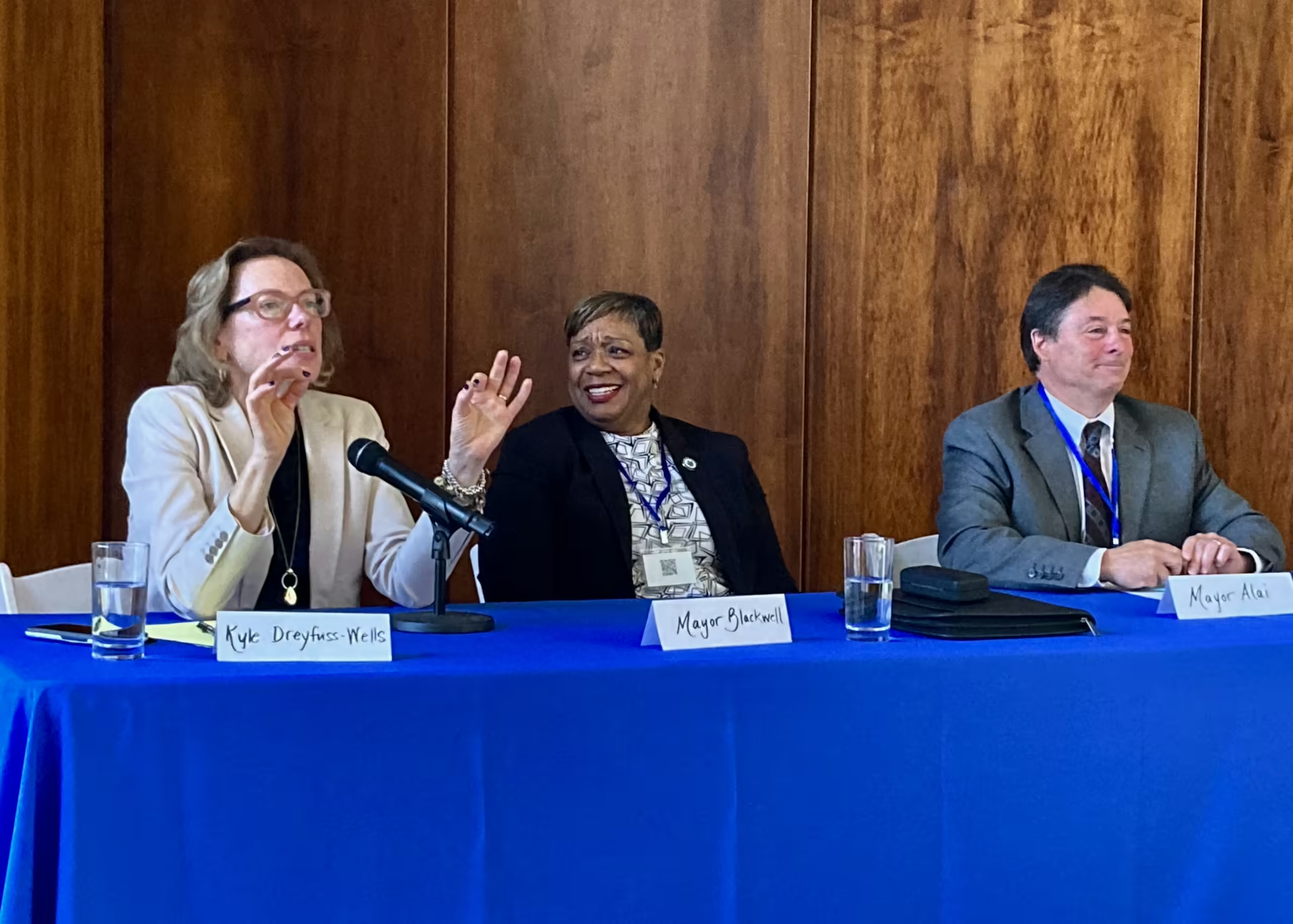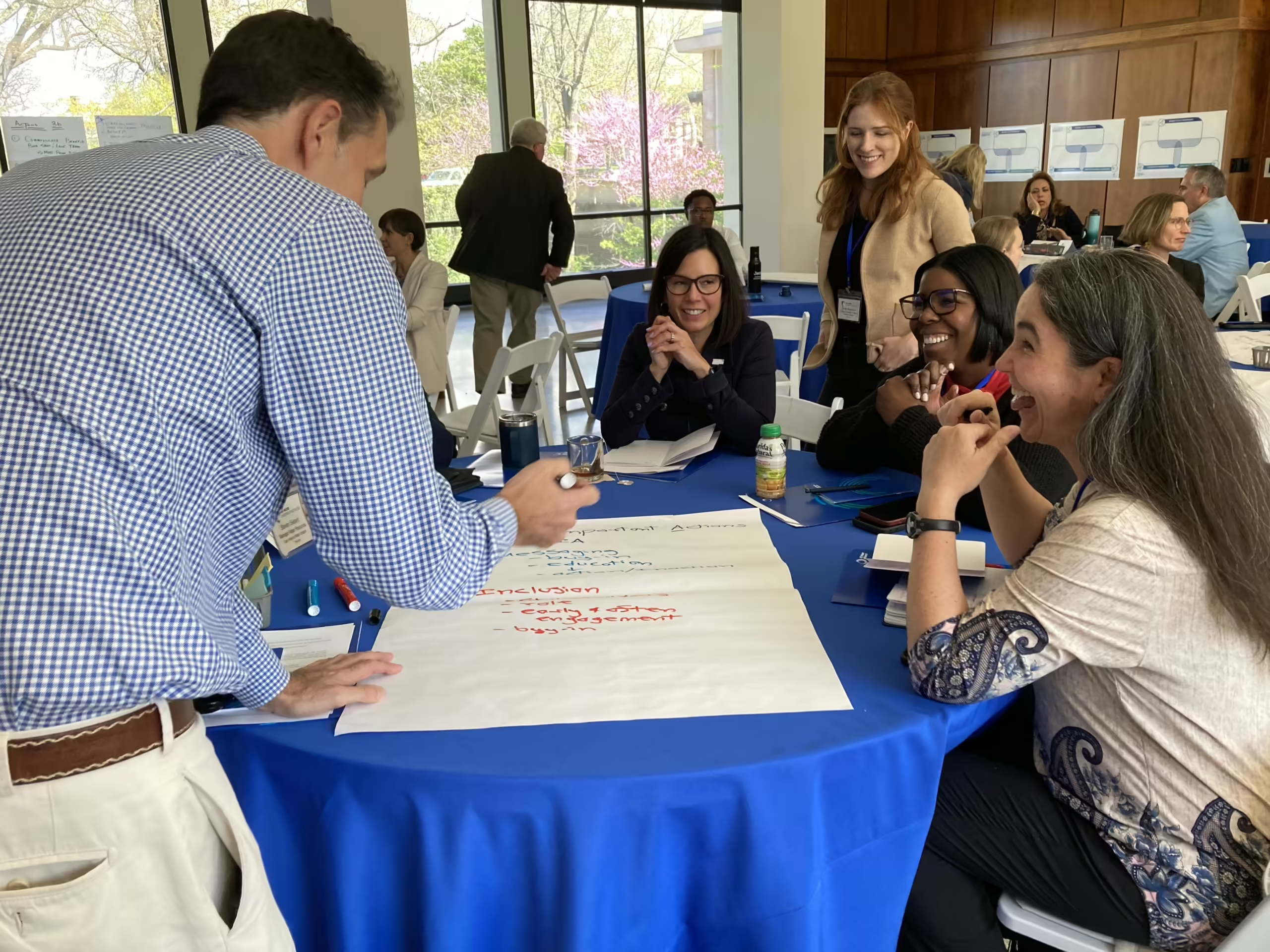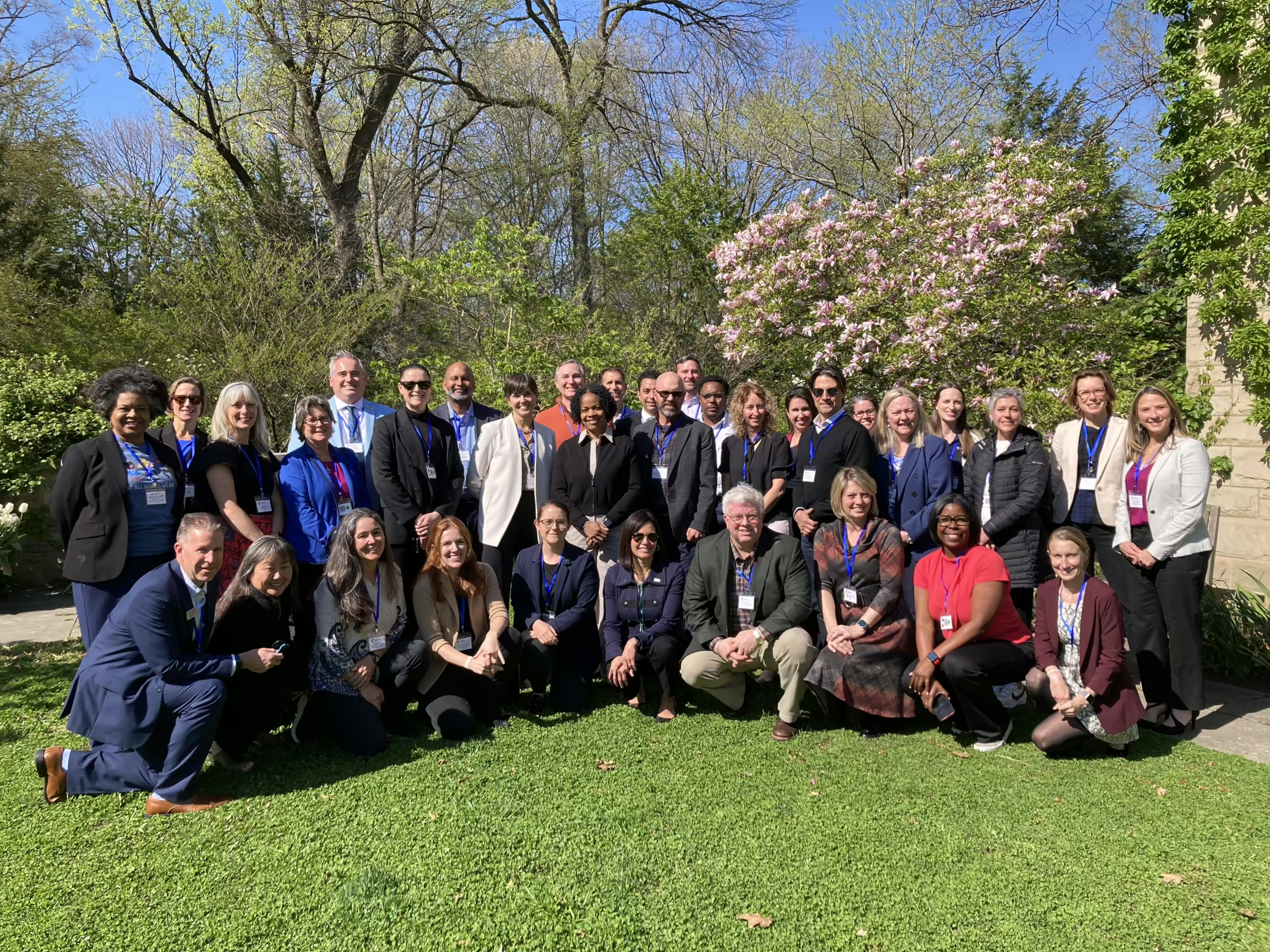Communities, particularly underserved communities, face increasingly complex water challenges—from aging infrastructure, climate impacts, and pollution to ensuring access and affordability in the face of rising costs. Partnerships of all kinds, especially regional and watershed-scale partnerships, have a role to play in advancing sustainable water management in the US.

Kyle Dreyfuss-Wells (NEORSD), Mayor Annette Blackwell (Maple Heights, OH), and Mayor Sam Alai (Broadview Heights, OH) share results from their partnerships through NEORSD’s member community infrastructure program
But saying that is easier said than done. That’s why we convened a One Water Leadership Institute on regional partnerships in Cleveland, OH, which brought together nearly 50 cross-sector leaders to examine regional partnership models, best practices for implementing them, and how to overcome common barriers along the way.
Co-hosted in partnership with the Northeast Ohio Regional Sewer District (NEORSD), this Institute was grounded in NEORSD’s work as an anchor utility supporting neighboring communities in their efforts to finance and execute mutually beneficial infrastructure improvement projects.
“Equity without inclusion is an illusion. The trust you’ve built will continue to have benefits beyond the program.” – Mayor Sam Alai
“We were on the verge of bankruptcy. NEORSD was a great place to find expertise and responsiveness. Know where your help can come from.” – Mayor Annette Blackwell
While convening at the region’s Watershed Stewardship Center on day two of the Institute, we also heard about the ways in which NEORSD is fostering a strong and leveraged regional stakeholder ecosystem in the region among nonprofits, local philanthropy, parks departments, and utilities to advance watershed restoration, flooding and erosion mitigation, equitable access to nature, and related economic benefits.

Participants workshop ways to set enabling conditions to form effective regional partnerships
Participants grappled with these and eight other regional partnership models grounded in real stories shared by leaders enacting regionalization models, workforce development collaboratives, or partnerships with agricultural producers. In workshopping the various models’ applications, potential benefits, barriers, and the most significant actions to overcome barriers and set enabling conditions, a few key insights emerged:
- The most successful regional partnership models have found ways to fund social infrastructure that gives relevant groups the capacity to engage with one another.
- The messages that draw partners are rooted in prospective partners’ core interests and how they are served through collaboration that makes the entire region more resilient.
- Water leaders who excel in crafting high-performing regional collaboratives demonstrate sincere care about the whole—not just their part.
- Thinking big about the scale and scope of a regional partnership can move stakeholders from conflict over scarce resources to attracting new resources, capacity, and investment—increasing the pie for all.
- Resilience comes through diversity. The solutions that emerge through a diversity of partners with a common root challenge lead to greater resilience.
“Rural America is essential to the rest of us. To talk about sustainability at all, we also have to talk about the sustainability of rural communities—and we are not going to get there one community at a time.” – Olga Morales Pate, CEO, RCAP
The US Water Alliance is grateful to the thought leaders from across our network who shared inspiring case studies and worked together towards a preliminary One Water regional partnerships framework. We are excited to finalize that framework in the coming months and share these leaders’ insights on One Water approaches to regional partnerships with the broader network.
One Water is a way to achieve so much more than we can imagine—and a large part of that promise is due to the regional partnership mindset that so many forward-thinking One Water leaders embody. Through authentic cooperation and a winning mix of cross-sector and community-driven partnerships, water leaders can uncover regional One Water solutions. Further, by working together, large and small communities are able to achieve greater gains for the region than they would be able to working on their own.

One Water Leadership Institute attendees at the Cleveland Botanical Gardens


